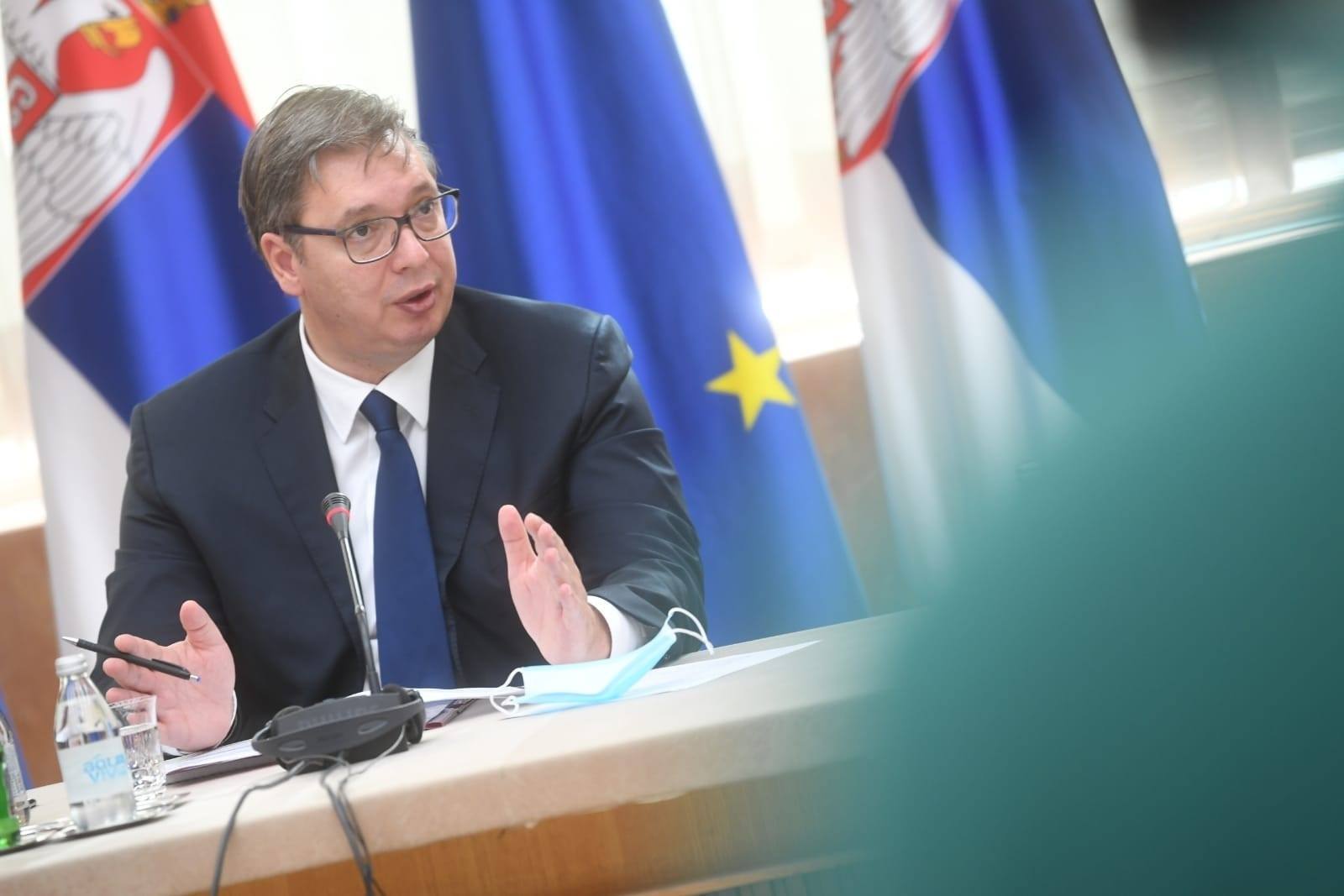
Constitution put to a vote in effort to accelerate EU integration
The Balkan country is to hold a referendum on amending the constitution with a view to making the administration of justice and the courts more independent. Brussels expects Serbia, which has been held up in the antechamber of the EU, to take steps towards the rule of law.
„Are you in favour of confirming the act on changing the constitution of the Republic of Serbia?” This is the question Serbian citizens will be asked on Sunday, 16 January. The adult population can give a „yes” or „no” answer between 7 am and 8 pm. The referendum will be valid in any case as there is no validity threshold and a small margin is enough to amend the constitution.
Serbia’s parliament adopted the text of the constitutional amendment at the end of November. The change concerns only the operation of the judiciary and the manner in which judicial office holders are elected. If the referendum is successful, judges and public prosecutors will be elected by independent professional bodies.
Under Serbia’s laws, a two-thirds majority is required in the parliament of the republic to amend the constitution, but citizens have the final say. This is why a referendum must be held this weekend. The amendment implies that parliament and politics will withdraw from the process of electing judicial office holders. Currently, some of the judges and prosecutors are elected by the High Judicial Council while the majority of them are elected by parliament. Following the amendment to the constitution, parliament will have no power in the process of electing judges and public prosecutors. Politics is excluded from the process.
The amendment to the constitution is a requirement set by the EU. For this end, Serbia’s government and parliament have regularly consulted the Venice Commission over the past one year. Experts say that the changes were designed to be in line with EU requirements.
Plans afoot to accelerate European integration
With the constitutional amendment, the country is taking a serious step to address previous shortcomings pointed out by the Venice Commission, Tamas Korhecz, a Serbian constitutional judge, told Pannon TV in an interview in Subotica.
A successful referendum would add impetus to Serbia’s European integration, Mr Korhecz pointed out. Rule of law issues pose one of the biggest hurdles in the accession process, he added, underlining that the independence of the judiciary is the basis for the rule of law to prevail. However, it is important that the rule of law is exercised also in practice following the amendment, the constitutional judge noted.
Serbia’s governing parties are encouraging people to participate in the popular vote. Serbian President Aleksandar Vucic said it was not a question to decide along partisan lines but a decision about Serbia’s future. What is at stake is the country’s moving ahead on the road to the EU, the president of the republic said.
A protracted process
The accession process of Serbia to the EU has been dragging on for more than a decade: The country submitted its application in December 2009 and was granted candidate status in 2012. Initially, 35 accession chapters were identified, which have since been divided into clusters with the introduction of a new methodology. The revised methodology is intended to give impetus to both the accession process and the implementation of reforms.
EU country reports on Serbia have shown no significant progress over the years. According to the latest document released in October, Serbia has achieved an overall average rating of 2.8 on a scale of up to 5. Deficiencies in the rule of law and freedom of the press, as well as negative rhetoric and hate speech in parliament and in other areas of life, continue to receive the most criticism. According to EU Enlargement Commissioner Oliver Varhelyi, Serbia needs to take steps in the areas of rule of law, combating corruption and freedom of the media, and must absolutely normalize its relations with Kosovo. At the same time, it is positive that the fourth cluster relating to the Green Agenda and sustainable networks was opened in December. In this regard, Andor Deli, a Serbian-born Fidesz MEP, reacted by saying that the work invested by the Serbian government appears to be paying off. „The country’s EU accession process can receive a new impetus, and this is of paramount importance to all Serbian citizens,„the MEP added.
Serbian PM Anna Brnabic stated that opening a new cluster despite the pandemic is a great achievement for the country. „This is a huge motivation for us, a significant tailwind, which will enable us to make further efforts to achieve even greater results in 2022 and open chapters and clusters,„‘ the prime minister said. On the topic of the referendum on amending the constitution, she said, “This is not a political issue, but an issue about issues. On one side will be those committed to the independence of the judiciary and to European integration, and on the other will be those who say that the judiciary does not have to be independent.”
Hungary is one of Serbia’s most important supporters in the accession process. Minister of Foreign Affairs and Trade Peter Szijjarto recently said, for example, that „If it were up to us, Serbia would have already become a member of the European Union yesterday.” However, enlargement skeptics in Brussels continue to oppose the country’s integration, arguing that Serbia would only pose a cost to the EU, especially to the rich member states, without bring substantial benefits.

